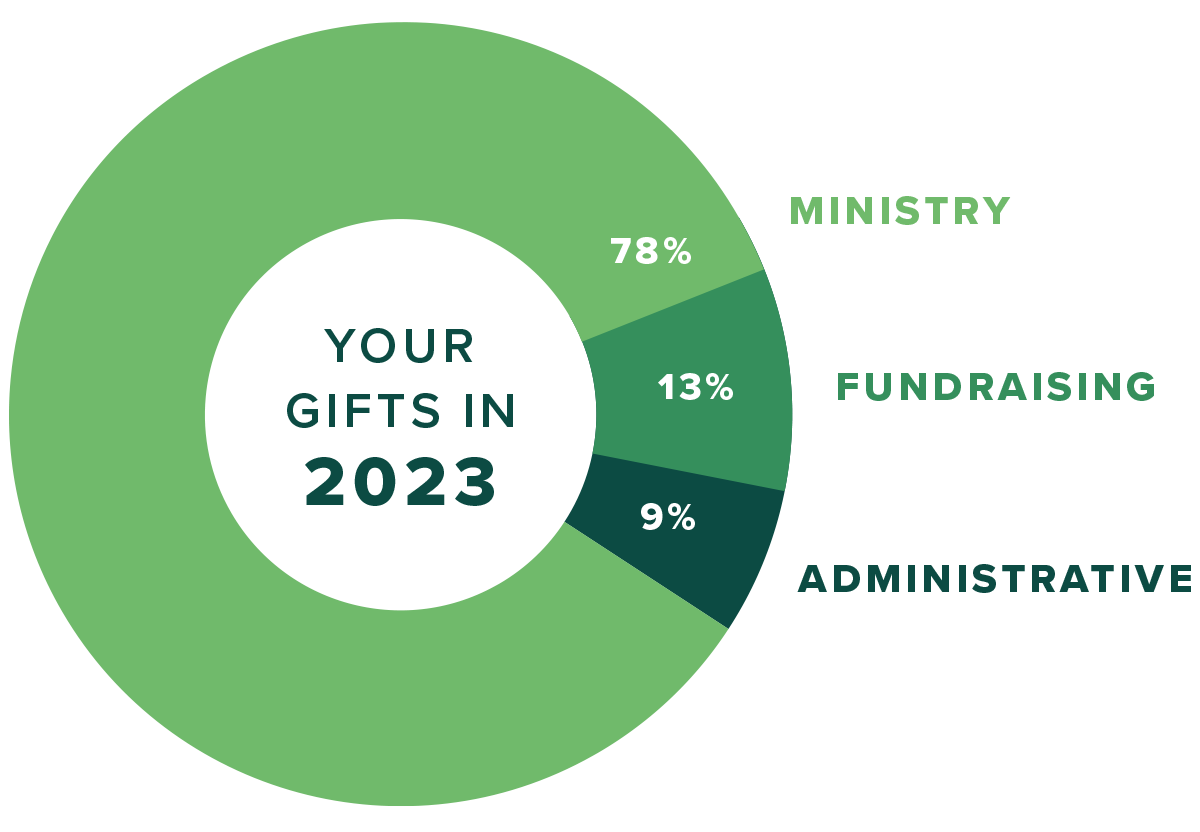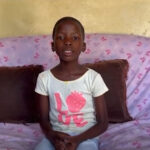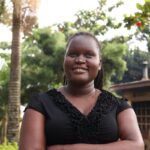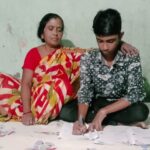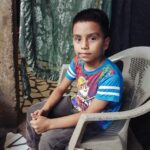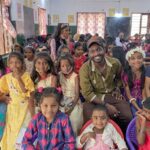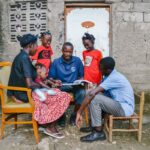Child Champions in Kenya are tackling damaging messages about menstruation, helping girls afford basic supplies so they can stay in school, and designing bathrooms at Hope Centers to help girls thrive.
Over 800 million girls and women around the globe menstruate daily, and women and girls who don’t live in poverty can easily maintain good menstrual hygiene management. But for many young women living in poverty, the situation is different.
Most of the girls struggle with “period poverty,” which is lack of access to sanitary products, menstrual hygiene education, toilets, and hand-washing facilities.
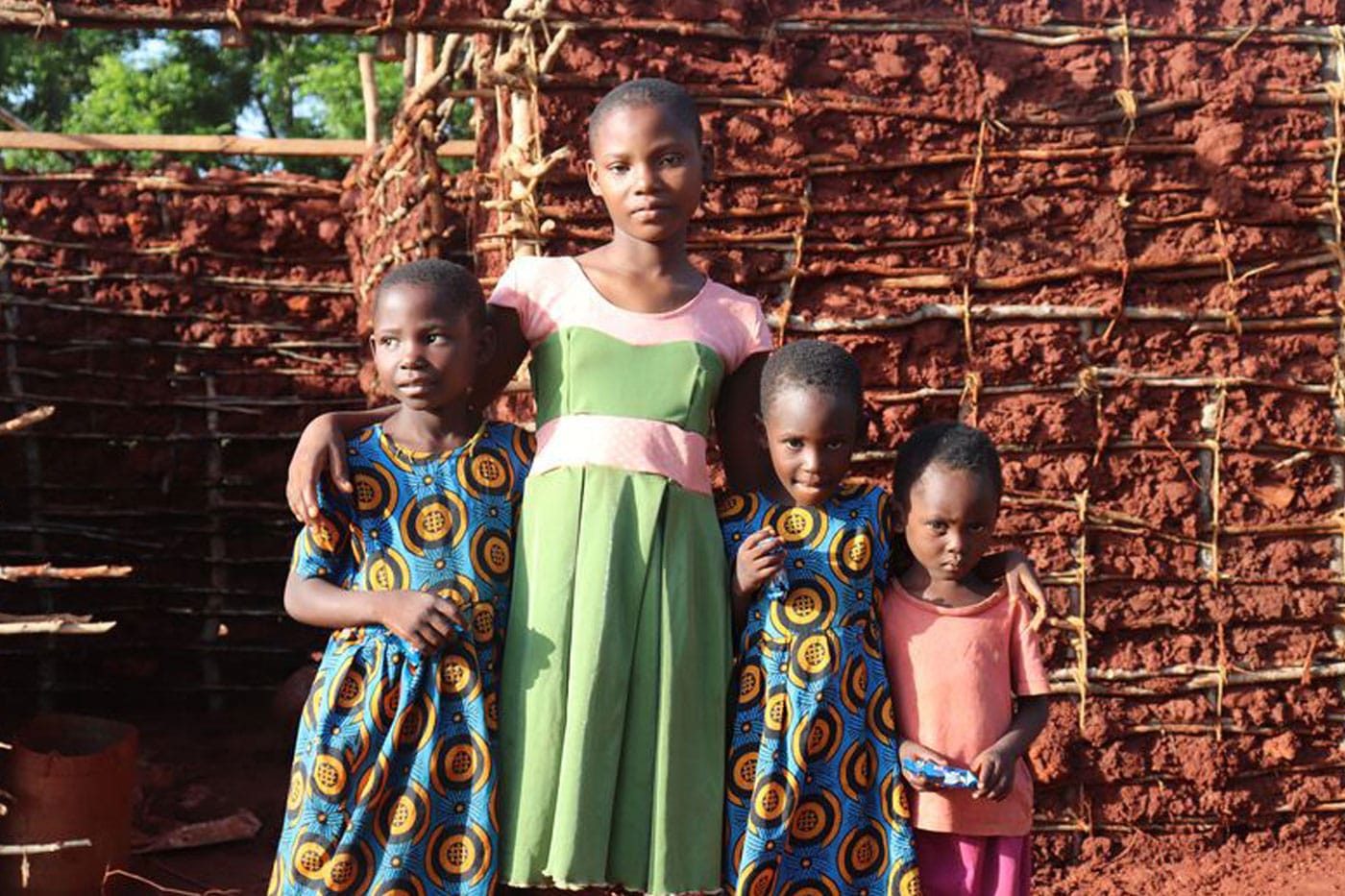
In Kenyan communities, like many others around the globe, many girls from low-income communities struggle not only with period poverty but also stigma and taboos that directly affect the girls’ dignity, confidence, and self-esteem.
Period poverty keeps kids out of school and even threatens to keep OneChild registered kids from attending sessions at the Hope Centers.
The government recently rolled out a free provision of sanitary towels in schools. In addition, OneChild has also helped keep the girls in school by providing sanitary pads monthly, even during school holidays, and educating them on menstrual hygiene management and how to fight against the stigma of menstruation.
Spoken of in Whispers
Many cultures in Kenya do not openly speak about menstruation, which means that often girls do not hear about it until they experience their first menses, which can at times be scary and embarrassing.
For the Maasai community in Kajiado, a county that hosts a number of the OneChild Hope Centers, despite sensitization, the topic is still spoken about in whispers.
“Menstrual hygiene management has been sensitized among the Maasai community, but to date, this topic is frowned upon by the men in the community,” says Florence Lekishon, a Child Champion at Nasaru Hope Center. “Most girls who experience the periods prefer to tell their elder sisters, mothers, or grandmothers about it but in low tones, and it is a secret that is kept away from even their fathers.
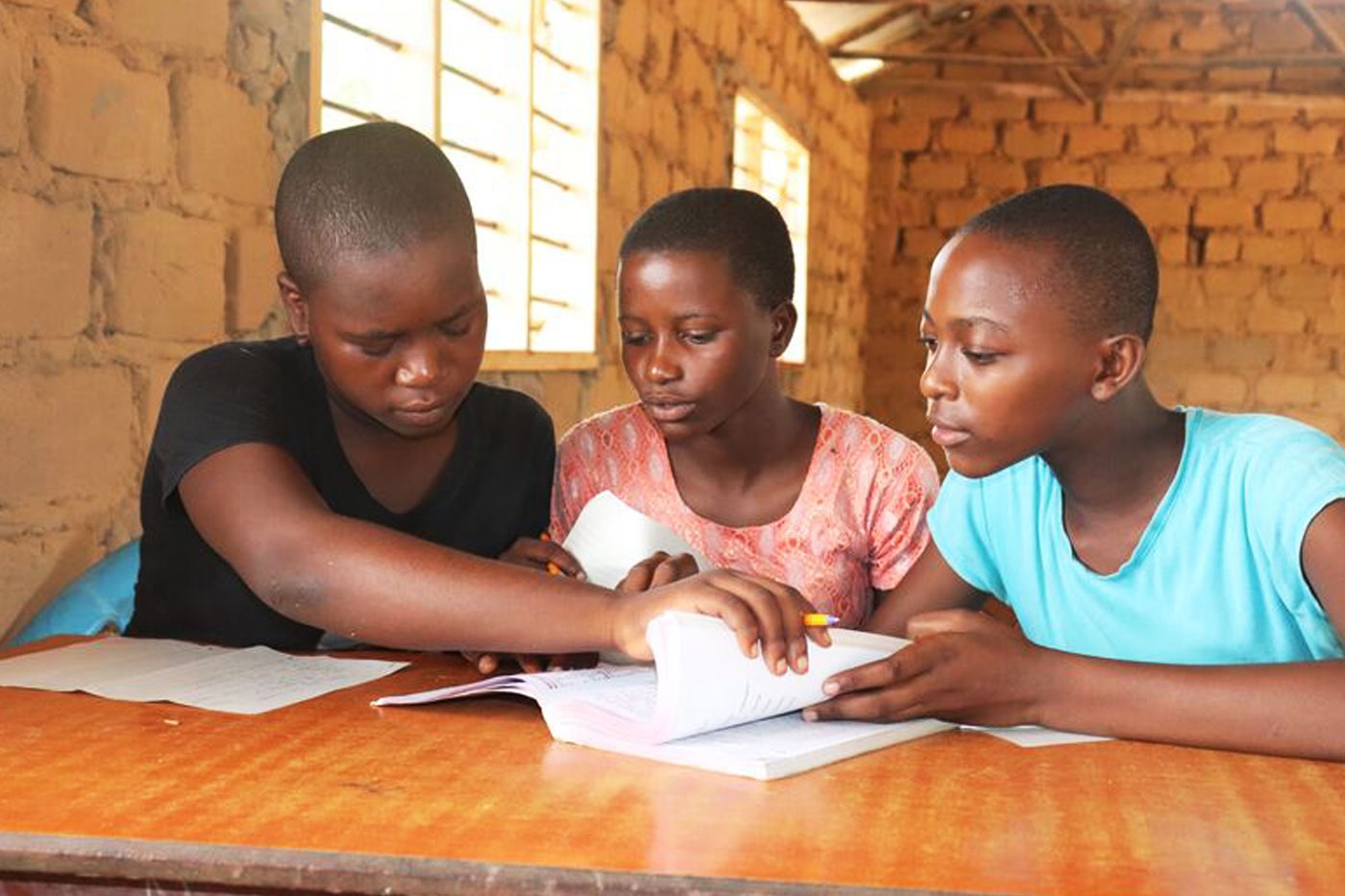
“This topic is easy for the girls who are already experiencing their monthly periods, but for the young ones who are yet to experience it, they mostly shy away with the fear that boys or men will know they have matured up, which affects their playtime and active participation in daily activities.”
Florence also notes that women and girls in the semi-nomadic community are not allowed to milk cows or enter goat pens when menstruating.
Girls’ Education Affected
For the Turkana, a remote tribe of people who are traditionally herders, menses are surrounded by stereotypes that the community has held on to for a long time, says Joyce Shaban, a Child Champion at Lokwii Hope Center. According to Joyce, a girl is considered unclean during her periods and is not allowed to do any exercises or chores at home, especially cooking.
Just like the Maasai, the topic is kept secret. For the girls in Turkana, menses are highly frowned upon, and most of the time girls keep it to themselves except for the rare occasions when they share their experience with their mothers.
This had earlier on affected the performance of the girls in school because most failed to attend school when having their periods, and those who attended would sideline themselves and not play with other children for fear of soiling their school uniforms.
World Menstrual Day is on May 28 and is themed, “It’s Time for Action.” The purpose is to break the barriers of access to good menstrual hygiene during the pandemic.
Choosing Between Food and Sanitary Towels
Most girls living in poverty in Kenya can’t afford sanitary pads, called sanitary towels there. This has forced some girls to use pieces of old rags that are not hygienic or comfortable.
“The towels are easily accessible at the local shopping centers. The main problem is the affordability of the commodity,” says Nelly Karisa, a Child Champion at Neema Hope Center in Malindi. “When a family can barely afford food, the sanitary towel is treated as a nonessential item.”
However, Florence and Nelly say that menstrual education at the center has to be taught with the consideration of culture.
“We speak to the girls about it and even in the schools they attend, the topic is spoken about. But we have to separate the girls from the boys, and a female teaches the girls about menses,” says Florence.
She adds, “This is because most boys will laugh at the girls if the lesson has to be combined, and this will, in turn, lower the girls’ self-esteem, something we don’t want to happen.”
The privacy of the girls during their periods is also promoted at the Hope Centers where separate toilets for the girls have been constructed and water tanks erected in the compounds to help the girls feel comfortable during their menses.
“Feminine bodies are sacred, and they were designed uniquely by God, and that includes menstruation, says Florence. “We urge our girls to feel secure and proud about experiencing their periods as a way of acknowledging how unique and beautiful they are.”
Give a precious girl or boy living in poverty hope, love, and encouragement by sponsoring today!
We are accountable to the children we serve AND to our donors.
Our accountability to our donors is one of our highest priorities. Our goal is to use the funds entrusted to us as wise stewards. To do this requires continued monitoring of our fund distribution. OneChild is also a member in good standing with the Evangelical Council for Financial Accountability (ECFA)
